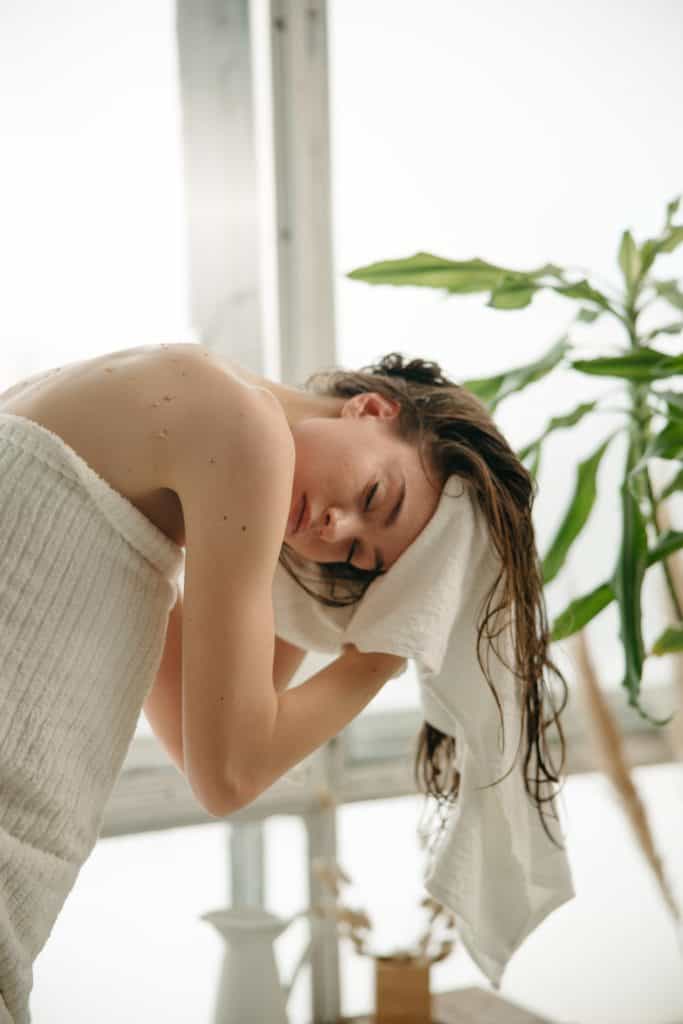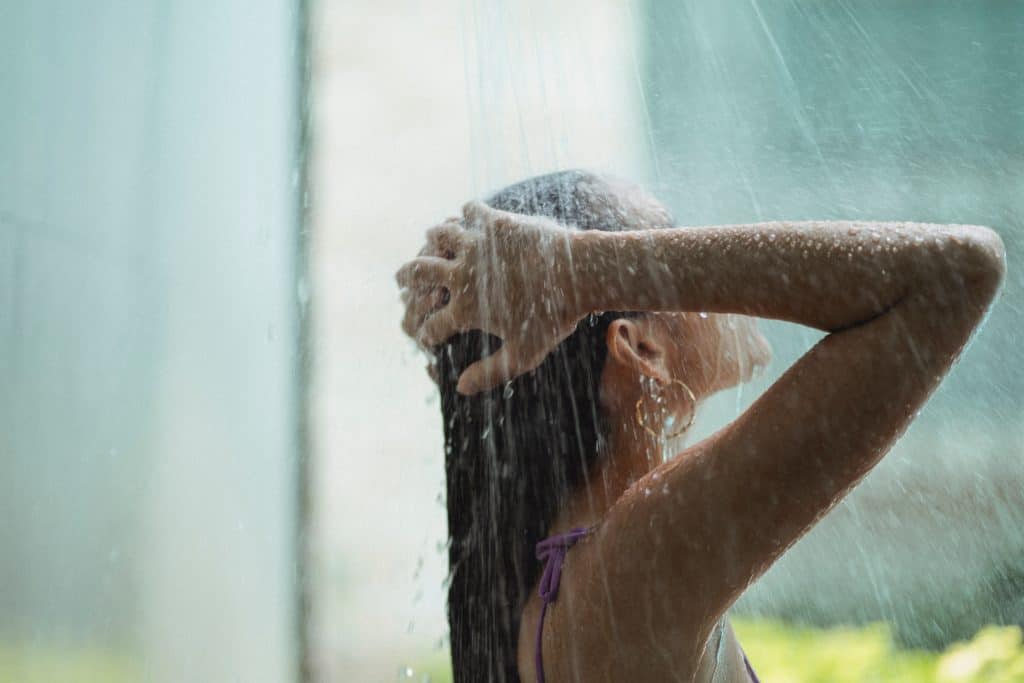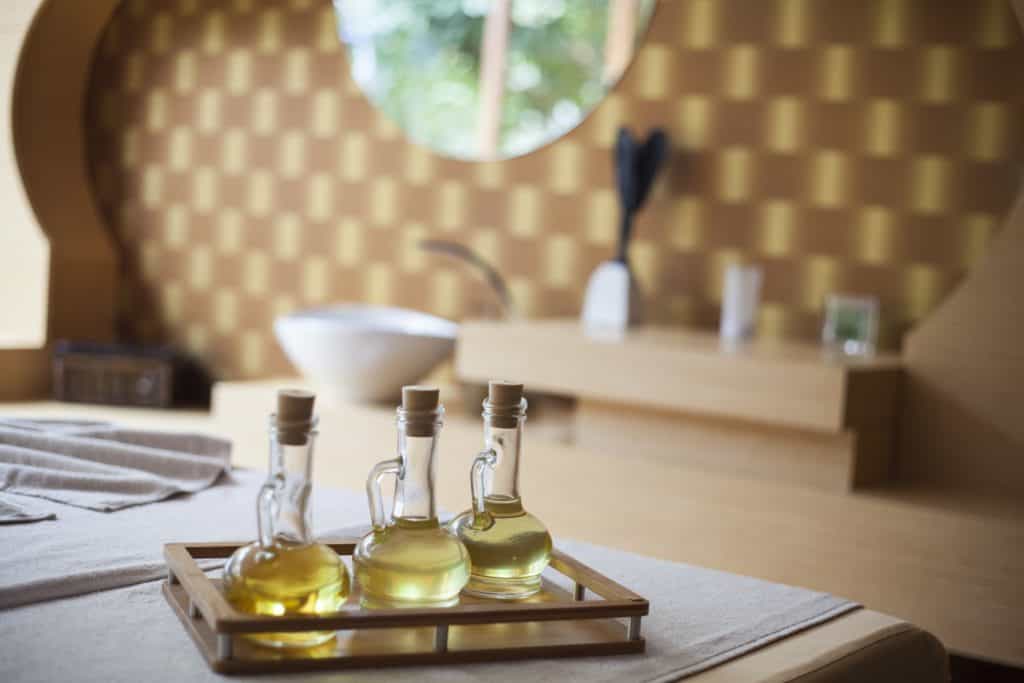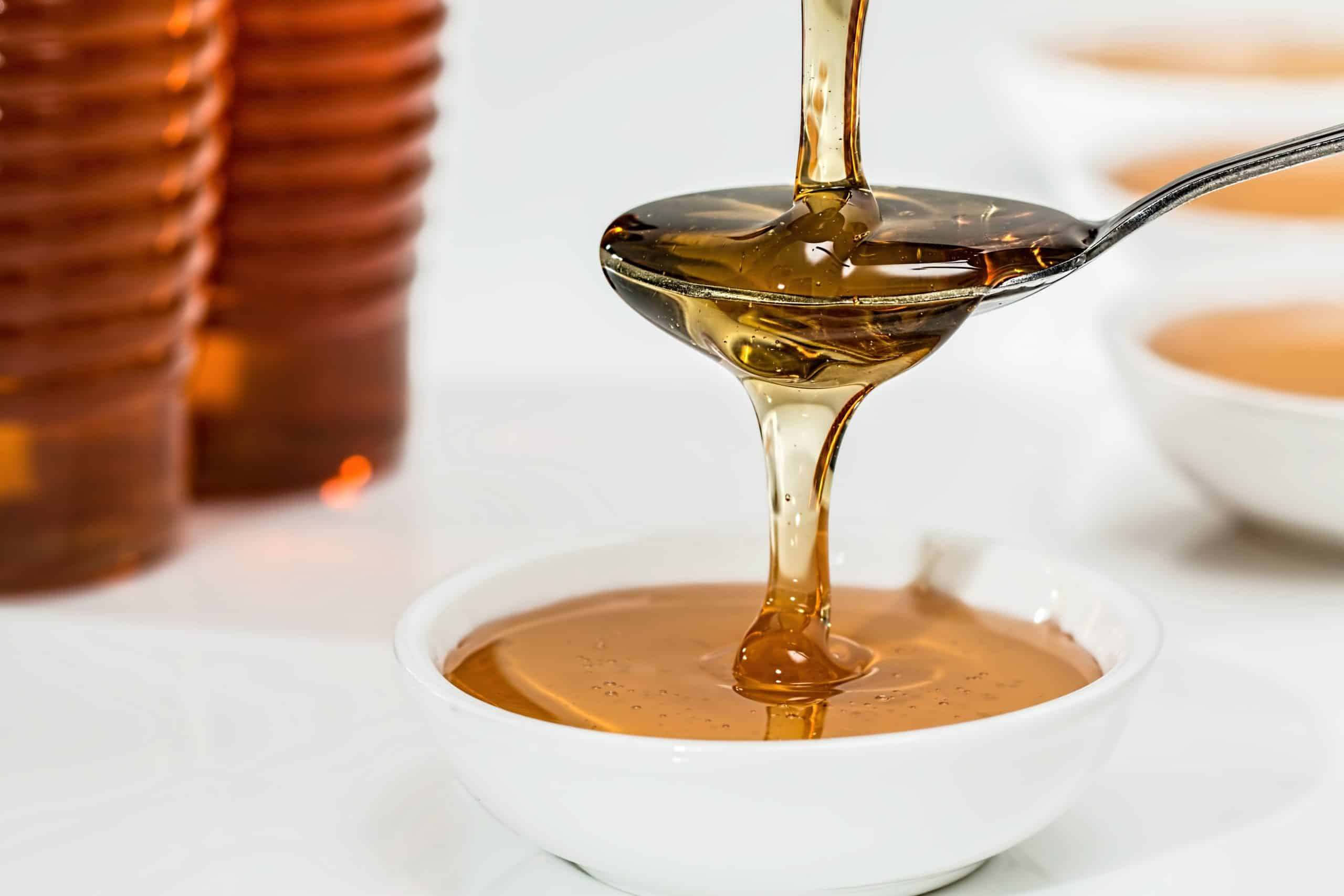How to Make Homemade Conditioner For Hair – 21 Easy Ingredients Found in your Kitchen
How to make homemade conditioner for hair with these easy 21 ingredients that you can find in your kitchen.

Nobody likes the thought of putting harmful chemicals on their body. So if given the option to put healthy chemical-free ingredients in your hair, to promote growth, health, strength, prevent damage, and that are good and healthy for your skin to absorb and use in your body, AND save money on products, why not?
Why do we not use homemade conditioner for hair as a society?
Convenience is one reason why we don’t take the time to make DIY homemade conditioner for hair more often.
It takes time to make your own hair masks and conditioner. Not very long, mind you, but just long enough that we have to stop and remember to bring it to the shower instead of it waiting for us there.
We will be going over some simple ingredients to use to make your own homemade conditioner for your hair that you can mix and match to create the perfect combo for your gorgeous locks and skin.
Is it expensive to make your own homemade conditioner for hair?
Not at all.
A little knowledge of the ingredients found in your kitchen to make healthy hair mask recipes to condition your hair after shampooing.
There is very little shopping needed to ensure that you have the ingredients to make hair masks and conditioners at home because most of these ingredients are staples already found in your kitchen!
Below we will go over the ingredients that you can use to mix and match to make your own homemade conditioner to use after shampooing.
First, Wash Your Hair
Before putting on your perfect combination of conditioning ingredients on your hair, you should cleanse and wash it with your favorite silicone-free shampoo or the Apple Cider Vinegar Hair Rinse from the link below.
Apple Cider Vinegar Hair Rinse- Quick Mask Recipe
Apple Cider Vinegar used as a hair rinse is a natural and chemical-free cleanser for the scalp that is rich in potassium, pectin, malic acid, calcium, and vitamins B and C, which nourishes the scalp while simultaneously gently cleansing and removing the micro-bacteria roaming on the scalp that slows hair growth and causes itchiness and possibly break-outs.
But using an ACV cleanser shouldn’t stay on your scalp for more than 5 minutes. So, it’s super quick and healthy to use.
* Disclaimer- Some people may develop an irritation on the skin, if this occurs, stop using the ACV rinse and use a different cleanser for a few washes before trying again. If the irritation continues, ACV rinse cleansers may not be for you.
Why silicone-free shampoo and cleansers?
Because silicone is often used as a filler ingredient in most generic brands of shampoos to make the hair smooth, but it doesn’t stay smooth for long. Silicone builds up on the scalp and the hair, blocking the cuticle and clogging the follicles and pores on the scalp.
Is Silicone Free Shampoo Good?

Simple Ingredients to make Homemade Conditioner for Hair Found in your Kitchen
Oils for Homemade Conditioners
- Olive Oil
Historically known to revive the skin and hair and keep it smooth and soft. Though olive oil is thicker, less is more when it comes to using it on your skin and in your hair masks.
No more than two or three drops should be used in hair conditioners to prevent an oily and greasy look after the mask is rinsed out and the hair drys.
If your hair looks greasy after adding olive oil to your conditioner, it simply means that there is too much in the mask and the excess is sitting on top of the hair cuticle.
To prevent this from happening next time just use less, or try a different kind of oil in the next mask that you use.
- Avocado Oil
Avocado is a well known for its rich mineral and vitamin content for skin care, but avocado oil also contains the same minerals and vitamins and it can help seal the cuticle, which can prevent hair from breaking.
- Coconut Oil
Light and highly hydrating, coconut oil is excellent for hair and skin masks, but just like other oils if you use too much it will make your hair look greasy.
Another great fact about coconut oil for hair is that it doesn’t buildup on the hair and continues to hydrate the hair for days after use.
- Jojoba Oil
An excellent moisturizer and often used in conditioners, leave-in conditioners, and beard oils. Jojoba oils fights dryness, breakage, and split ends.
- Argan Oil
Extremely well known for moisture and used sparingly, a drop or two goes a long way when adding argan oil to your homemade conditioner for hair.
Argan oil is most often used in beard and hair oil mixes with jojoba oil and essential oils, however, in my personal and professional experience as a barber and cosmetologist, argan oil tends to coat the outside hair instead of soaking into the hair.
By only using a drop or two of argan oil and cocktailing it with other ingredients for your conditioners or leave-in conditioners will make them richer and coat the hair just enough to keep the other ingredients and their benefits in the hair.
- Vitamin E Oil
Vitamin E oil is used more for skin support than for the hair, it reduces the oxidative stress on the scalp, promoting elasticity, and nourishes the follicles to encourage the hair to grow happy and healthy.
- Rosemary Essential Oil
Besides stimulating hair growth, rosemary essential oil is used to to prevent premature graying and is a strong deterrent to lice
Ingredients for Homemade Conditioner for Dry Hair
- Honey
Honey is known for its softening, healing, and moisture retaining properties.
You can put honey in your homemade conditioner, or even face masks to help your skin heal from dryness, sunburn, cuts or scrapes, as well as soften and hold the hydration you are putting on it. If the skin is healthy, the hair growing from that skin will be healthy too.
A tiny bit of honey in your hair mask will smooth the hair, and help retain the moisture of the other ingredients in your mask.
- Egg Yolk
Egg yolk is rich in Biotin, which is also known as vitamin B7, which increases stimulation in the follicle and increase hair growth. Not only should you use egg yolk in your homemade conditioner for hair, but be sure that you are consuming enough vitamin B7 to encourage growth and overall health from the inside out.
Biotin also helps maintain the integrity of your hair and maintain its elasticity so that it doesn’t stretch and break.
Egg yolk is an excellent ingredient for those of you with highlighted hair or have ever had a bleach treatment.
- Banana
Banana has antimicrobial properties that heals flaky and dry scalp.
The Difference Between Dandruff and Dry Scalp
Banana puree can be difficult to rinse out of your hair, so soak or boil it in water first. Once strained, the mineral silica comes out of the banana and into the water and helps the body use collagen that makes the hair stronger and thicker.
- Rice Water
It is rich in amino acids strengthens the follicles and hair roots, it adds shine, smooths and makes the hair soft. Rice Water also contains inositol, which is can help repair damaged hair, reduce anxiety, and reduces hair loss.
- Mayonnaise
Ages have gone by with mayonnaise being the ‘secret to hair health’ but no one ever explained why. Mayonnaise is made with egg and olive or vegetable oils, the high levels of protein in eggs helps strengthen and hair follicles.
Sometimes mayonnaise is made with avocado oil which is higher in fatty acids. We have already discussed the benefits of olive oil, and avocado oil in the hair to enrich the scalp and smooth and hydrate the hair. So, mayonnaise is a great ingredient to add to your homemade conditioner for hair.
- Coconut Milk
Coconut milk contains fatty acids, sodium, calcium, potassium, which nourish the scalp and the follicles.
- Yogurt
The proteins in yogurt offers nourishment to the skin and the scalp, like discussed above, if the skin is healthy the hair is healthy too. Yogurt also contains a lactic acid which is excellent for deeply cleansing the scalp. If using a whole milk plain yogurt, the fat from the dairy will also hydrate and nourish the scalp.
Personally, I love using yogurt regularly in my face masks. It works wonders on the skin!

Homemade Conditioner Ingredients for Gray Hair
- Lemon Juice
Though lemon juice is naturally acidic it deeply cleanses the scalp and hair follicles, restoring healthy pH levels, and removes build-up of product, oils, and pollutants on the skin as well as cleansing microscopic abrasions on the skin (like pimples).
Lemon juice helps clarify gray hair from becoming yellow toned. But should not exclusively be used for gray hair.
- Green or Black Tea
Green and black teas are often used on the skin and hair for their caffeine content. Caffeine is known to help increase blood circulation to the scalp.
As discussed in Does Exercise Help Hair Growth? we know that hair grows from blood flow. The better the circulation is in the scalp, the more the follicles are stimulated and fed, and the more your hair will grow.
When you’re massaging hair products directly to the scalp you’re aiding blood circulation to the scalp and stimulating the roots.
So, not only does massaging homemade conditioner into the scalp stimulate growth, but using caffeine to stimulate circulation, will encourage growth too.
Ingredients for Homemade Conditioner for Curly Hair
- Flaxseed Gel
Flaxseed gel is incredibly hydrating to the scalp and the hair, without building up on the hair, and eliminates free radicals that roam the scalp slowing hair growth, while nourishing the scalp simultaneously with its rich vitamin B and E content.
How to Grow Hair Fast- Best Hair Mask for All Hair Types
Flaxseed gel is very easy and inexpensive to make, and helps curly hair become more bouncy, and less frizzy.
- Marshmallow Root
Marshmallow root gives natural and curly hair more body and bounce. Marshmallow root contains a high amount of minerals, protein, and vitamins and makes the hair strong, less fragile and prone to breakage.
Ingredients to add to your homemade conditioner for hair NOT found in the kitchen
- Aloe Vera
Aloe vera contains vitamins A, C, and E, all of which contribute to cell turnover, promoting healthy cell growth and adds shine to hair. Vitamin B and folic acid are also found in aloe vera gel, both of which can keep prevent hair fall out.
- Shea Butter
Shea Butter is better known for its anti-inflammatory properties and is commonly used in lotions for the skin. But hair and skin are similar enough and have the same pH. So shea butter used in hair masks and conditioners is excellent to treat and encourage a happier environment for hair to grow.
Shea butter used in hair will reduce frizz and soften coarse hair but if too much is used in a hair mask it can make the hair look greasy.
What are the pros and cons of making your own conditioner?
✔️ No chemicals
✔️ No sulfates
✔️ If you have color treated hair, permed or highlighted hair, and avoiding more chemicals on your hair it will prevent further dryness and buildup on the hair
My Hair Won’t Take Color- Why and What To Do About It
✔️ Using your own homemade conditioner decreases frizziness and friction between hair strands
18 Quick Tips to Help Get Rid of Frizzy Hair Overnight
✔️ Homemade conditioners often contain oils with highly hydrating qualities to smoothen, strengthen, and add shine to your hair
❌ Exact ratios of the ingredients are less precise than mass produced products
❌ It takes some trial and error before finding the ingredients that your hair and scalp like the most and are the most happy with
❌ You have to prepare the conditioner ahead of time, the conditioner isn’t waiting in the shower for you when you are ready to wash your hair
How Often Should I Use a Homemade Conditioner?
Washing your hair when you feel that it needs washed is completely acceptable and healthy. If your hair is dirty, wash it! Over-washing your hair only dries out the scalp and strips the skin of its natural oils.
Professionally, I recommend washing your hair every 3-5 days. Sometimes there are exceptions to be made, after a long day of yard work, or swimming in the pool.
Is it Okay to Wash Your Hair Once Per Week?
You should use a conditioner every time you wash your hair, whether it is homemade or not. But, if you choose to use a DIY conditioner at home regularly, use it at least once per week. And don’t be shy about experimenting with the ingredients above to see what works best for your chemistry and your hair.
How to Wash your Hair to Prevent Hair Loss
Warning!!! Conditioner Made with Oils
Be warned that oils used in conditioners can make the shower floor slippery.
Be sure that you are careful when rinsing a conditioning mask out of your hair to use soap on the shower floor to protect yourself or others in your house from slipping.
Conclusion for Homemade Conditioner for Hair

These 21 ingredients found at home and in the kitchen are best for making homemade conditioner for hair.
All excellent ingredients for making chemical-free homemade conditioner for dry hair, curly hair, gray hair, coarse hair, damaged hair, and color treated hair.
Oils should be used in conditioners only a few drops at a time, and please be careful when rinsing conditioner out so that you don’t slip on the shower floor.
- Olive Oil
- Avocado Oil
- Coconut Oil
- Jojoba Oil
- Argan Oil
- Vitamin E Oil
- Rosemary Essential Oil
Hydrating and protein contents in these ingredients that nourish the scalp and hair. Only mix in a teaspoon of these ingredients into your mask at a time.
- Honey
- Egg Yolk
- Banana
- Rice Water
- Mayonnaise
- Coconut Milk
- Yogurt
Use a few drops of these in your conditioner mixture at a time for clarifying, deep cleansing and scalp stimulation.
- Lemon Juice
- Green Tea
Ingredients for to smooth frizzy curls, these can be used as a conditioner base, one tablespoon amount at a time.
- Flaxseed Gel
- Marshmallow Root
- Aloe Vera
- Shea Butter
I hope this list helps you and your hair and scalp health!
Is Salt Water Good for Curly Hair?
Coconut Oil for Grey Hair – Best Oils to Treat and Prevent Grey Hair
Top 10 Best Hair Care Tips and Tricks for Best Hair Care at Home

